|
For much of the past year my work as an auditor has had me traversing the country each week by plane, train, and automobile to attend to various client needs. The destinations often change depending on the assignment; one week it might be Philadelphia and the next it might be Los Angeles, one month it could be Denver and the next Minneapolis. While exploring new cities and meeting new people is exciting, I’ve also found incorporating the logistics and time it takes to go from point A to point B each trip adds another layer of exhaustion onto what is usually an already busy schedule. On a recent Monday morning flight, while praying Morning Prayer, I came across this reading from Isaiah 55:6,8-9; Seek the LORD while he may be found, call upon him while he is near. For my thoughts are not your thoughts, nor are your ways my ways—oracle of the LORD. For as the heavens are higher than the earth, so are my ways higher than your ways, my thoughts higher than your thoughts. I looked out my window at the view from 35,000 feet and saw an expanse of plains surrounding small midwestern towns that eventually morphed into suburbs and cities. In each locale there were thousands of people going about their day, unaware of the part they played in this picture I saw. “For as the heavens are higher than the earth, so are my ways higher than your ways.” I paused and thought about how God’s view of our own lives must look something like this. We, just like the people on the ground, go about our day unaware of the part we play in the bigger picture He sees. So often I find that I allow the stresses to become my sole focus of the day: a difficult audit assignment, a cancelled flight, maintaining relationships with friends and family while on the road, etc. While these daily stresses need our attention, in the big picture of our lives they are small blips on the radar that we can’t allow to distract us from seeking the Lord. Ultimately it is our continuous pursuit of God that allows us to press through our daily challenges, large or small, trusting in the knowledge that He has the view of our lives from 35,000 feet and will never fail us. Questions for Reflection: Is there an instance or time in your life when things didn’t go according to your plan? Has God’s way of doing things in your life ever proven more fruitful or beneficial than you could have anticipated? **This post was originally published on 4/26/2018**
0 Comments
The recent news of scandal within the American Church has understandably been the cause of immense frustration, anger, and disappointment in the public and, most especially, among the faithful. I have also seen many who have become disillusioned by the Catholic Church and decided to separate from the rest of the faith community. The danger in this response is that it risks throwing out the baby with the bathwater, as our faith community is one of the greatest gifts given to us by the Holy Spirit. Through my travels this summer, I had the opportunity to experience two very different cultures very much tied to our Catholic faith. My experiences in these cultures reminded me of the great blessing of our faith community. In early July, I set off with a group of teenagers and adults from my parish on a mission trip to visit our sister parish in Dessalines, Haiti. When we landed and traversed the countryside, I came face to face with poverty unlike any I have ever experienced. My concern over a lack of modern amenities quickly dissipated, however, as I was overwhelmed by the warm hospitality of our Haitian hosts. Most especially, the Haitian children and teens we worked with throughout the weeklong summer camp showed us true joy and hope. The pastor told us that our presence meant so much to the community, solidifying our relationship as brothers and sisters in Christ more than any monetary donation could achieve. In September, I travelled to visit extended family in Ireland. Despite it being only the second time I had met most of them, our conversations continued well into the evening and it felt as though we were picking up right where we left off. Evident among our conversations was a shared concern for the scandals facing the American Church, but there was also a resolute hope that keeping our eyes fixed on Christ would see us through. As we talked about the family history and previous generations, I was reminded of how grateful I am to have had the faith passed down to me and how much I owe to my ancestors. In these distinct experiences of encounter, the hospitality I was shown and the underlying hope I received from my conversations with my hosts reminded me of the great blessing of our faith community, no matter how far flung it might be. This an especially difficult time to be Catholic, but I firmly believe that with God’s grace our faith community, broken and imperfect as it may be, will also be among our greatest sources of hope. In times of adversity, let us cling to our communities of faith and to Christ Himself. Rather than abandon our parishes and local church communities, let us work to ensure that they are rooted in the love of Christ in order to build a holy Church, a community of hope. For much of the past year my work as an auditor has had me traversing the country each week by plane, train, and automobile to attend to various client needs. The destinations often change depending on the assignment; one week it might be Philadelphia and the next it might be Los Angeles, one month it could be Denver and the next Minneapolis. While exploring new cities and meeting new people is exciting, I’ve also found incorporating the logistics and time it takes to go from point A to point B each trip adds another layer of exhaustion onto what is usually an already busy schedule. On a recent Monday morning flight, while praying Morning Prayer, I came across this reading from Isaiah 55:6,8-9; Seek the LORD while he may be found, call upon him while he is near. For my thoughts are not your thoughts, nor are your ways my ways—oracle of the LORD. For as the heavens are higher than the earth, so are my ways higher than your ways, my thoughts higher than your thoughts. I looked out my window at the view from 35,000 feet and saw an expanse of plains surrounding small midwestern towns that eventually morphed into suburbs and cities. In each locale there were thousands of people going about their day, unaware of the part they played in this picture I saw. “For as the heavens are higher than the earth, so are my ways higher than your ways.” I paused and thought about how God’s view of our own lives must look something like this. We, just like the people on the ground, go about our day unaware of the part we play in the bigger picture He sees. So often I find that I allow the stresses to become my sole focus of the day: a difficult audit assignment, a cancelled flight, maintaining relationships with friends and family while on the road, etc. While these daily stresses need our attention, in the big picture of our lives they are small blips on the radar that we can’t allow to distract us from seeking the Lord. Ultimately it is our continuous pursuit of God that allows us to press through our daily challenges, large or small, trusting in the knowledge that He has the view of our lives from 35,000 feet and will never fail us. Questions for Reflection: Is there an instance or time in your life when things didn’t go according to your plan? Has God’s way of doing things in your life ever proven more fruitful or beneficial than you could have anticipated? This Sunday, the Sunday following Easter, the Church recognizes Divine Mercy Sunday, a day that carries an even greater emphasis in this Year of Mercy as announced by Pope Francis. Divine Mercy Sunday is a day that carries a special significance to my family. In a few weeks, my family will mark the tenth anniversary of the passing of my grandfather, known best to his grandchildren as “Pop-pop.” He was a man of great generosity both to his family and to each of his patients, who he spent his career serving as a cardiologist. He was also a man of great faith, who in his passing left his family with the greatest gift, one of faith in God’s infinite mercy. In the months before his death, as he gradually grew weaker and his cancer spread, he found a great peace in praying the Divine Mercy Chaplet. He was especially fond of praying the chaplet in song and even when he was too weak to say it himself, family and friends would pray it with him. It was widely known that at 3pm each day the television would be tuned to EWTN so he could recite the chaplet. Providentially, a local Catholic film producer was filming a new production of the Divine Mercy Chaplet in song, entitled Generations Unite in Prayer and they were looking to film someone elderly with a devotion to this prayer. Despite concerns over my grandfather’s declining health, he was insistent on being a part of this project and doing whatever he could to help spread the message of Divine Mercy. Also known for his sense of humor, on the day of filming,, Pop-pop remarked, “It’s a good thing Jesus is the star of this show, because I don’t look so good” as the crew captured scenes of our family praying the chaplet at his bedside. Following the filming, my grandfather felt a renewed sense of determination: he wanted to live to see one more Divine Mercy Sunday. Although this was still many weeks away, by the grace of God he lived to see that day. In fact, on Divine Mercy Sunday he insisted on getting out of bed and kneeling before the image of Divine Mercy that hung by his bedside to offer a prayer of thanksgiving with the intercession of St. Faustina. He passed away two days later. I was first introduced to the Chaplet of Divine Mercy when my grandfather was ill and still today I take great comfort in its words, particularly the words to the closing prayer: Eternal God, in whom Mercy is endless and the treasury of compassion inexhaustible, look kindly upon us and increase your Mercy in us that in difficult moments we might not despair nor become despondent, but with great confidence submit ourselves to your holy will, which is love and mercy itself. When facing personal trials I’ve found a great sense of hope in this simple prayer. Hope that whatever challenges I may be facing, God will grant me the peace and perseverance to see it through. Hope that despite my imperfections as a sinner, that I too may share in the glory of the resurrection. And the prayerful hope that death did not have the final word on that April day ten years ago, and that one day our family will join Pop-pop in his eternal reward. Today in the United States, families and friends gather together as they have for centuries around a shared meal to give thanks for their many blessings. A holiday rich with traditions, Thanksgiving brings about memories of eating at the “kid’s table,” cheering on family members in the annual Turkey Trot, late night dashes to the shopping mall and, of course, devouring enough food to last for days. For me, each of my cherished memories of this holiday share a common theme - the joy and love of time spent with my family. As we celebrate this holiday that brings our families together, I can’t help but recall the message of Pope Francis during his recent Apostolic Visit to the United States for the occasion of the World Meeting of Families. During the Festival of Families on Saturday evening, September 26th, Pope Francis sat and attentively listened as a handful of families came forward and shared the stories that had brought them to that stage on the Benjamin Franklin Parkway in Center City, Philadelphia. These families shared their own testimonies, speaking of the great joys in their lives, the suffering and losses they have experienced, the challenges, and the love that has held them together. I was incredibly moved to hear the stories of these families. Clearly, the Holy Father was as well, as he departed from his prepared remarks in his response. In speaking to the throngs of families present, he said, “The family has a divine identity card…God gave the family an identity card, so that families could be places in our world where his truth, love and beauty could continue to take root and grow.” This above all must be the primary mission of our families in today’s world. Inevitably, in our pursuit of this goal, each of us will encounter difficulties and setbacks that at times seem insurmountable. Pope Francis acknowledged this, saying, “In families, there are difficulties, but those difficulties are resolved by love. Hatred doesn’t resolve any difficulty. Divided hearts do not resolve difficulties. Only love is capable of resolving difficulty. Love is a celebration, love is joy, love is perseverance.” This Thanksgiving–in between the helpings of mashed potatoes, cheering on our favored football team and scouting out the biggest doorbuster deals–I hope this message from Pope Francis is one we keep close to mind. Our time spent with family, wherever we might be, is an opportunity to be a witness to God’s love. While we might have our disagreements and we might have our trials, with love we can persevere. And with love we can know an everlasting joy. On behalf of the entire Catholic Apostolate Center team, I wish you all a very blessed Thanksgiving! Each year it seems that just as soon as we’ve concluded the joyous season of Christmas, we find ourselves putting away the carols and nativity scene just to replace them with our Friday fish sandwiches and talk of our Lenten sacrifices. At first glance it may seem that the coming of Lent each year calls for us to “put away” our joy. After all it’s a season of penance to bring ourselves closer to Christ through his suffering – not exactly the definition of joy. But is it possible to still have joy during this season of prayer and reflection?
Recently I read Fr. James Martin’s book, Between Heaven and Mirth, in which he discusses how joy and our spiritual life don’t have to be mutually exclusive. Particularly he proposes ways in which we can incorporate joy into our prayer life, suggestions that we could put into practice this Lent. First and foremost we must be willing to bring our joy to the Lord through prayer. Just as we might call up a good friend with exciting news, so also should we cultivate that same desire to share our daily joys with the Lord. Although we may be in Lent, our daily lives aren’t devoid of joyous occasions. What made you laugh today? What was your “high point” of the day? When I was growing up my family would sit around the dinner table sharing our “high point,” or our favorite thing that happened to us that day. Forcing myself to remember something good was always easier some days than others but it reminded me there was always something for which I could give thanks. Additionally, beyond just recalling joyous moments, we can use our prayer to think back to the people, experiences and memories that perhaps we may take for granted. For myself, I can far too easily forget to recognize the blessings of being able to attend a university and pursue a degree, as well as the tremendous influence of my parents. Surely my years here in college and the lessons my parents instilled in me have also given rise to joy in my life; it’s just not something I always remember on a daily basis. Even more importantly, in remembering these people and experiences we may take for granted we develop a greater sense of gratitude and realize that our joy doesn’t exist in a vacuum, but because of these blessings that God has given each of us. In this we see that joy is much more than just sheer happiness. Rather, it is a reflection of our prayer life and relationship with God. As the French philosopher Leon Bloy once said, “Joy is the most infallible sign of God’s presence.” The secular world often views joy as synonymous with simple emotional happiness, yet, according to Fr. Martin, the Christian definition of joy is happiness in God and revolves around our relationship with Him. This is precisely what allows us to have joy in the midst of suffering, and yes, even Lent. Although at its outset Lent may not seem an occasion for joy, it is an occasion to deepen our prayer life and our internal joy - our happiness in God. In this prayer we can develop a greater sense of gratitude for both the blessings in our lives and, especially this Lent, an appreciation for Christ’s Paschal mystery, all of which can lead to a richer relationship with our Lord. St. Paul sums it up best in his Letter to the Thessalonians: “Rejoice always, pray without ceasing, give thanks in all circumstances; for this is the will of God for you in Jesus Christ” (1 Thessalonians 5:16-18). David Burkey is the Communications Coordinator for the Catholic Apostolate Center Be sure to check out the Catholic Apostolate Center's Lenten Resource Page! Editor's Note: This post was originally published on February 26, 2013 Every Feast Day or Solemnity in which the Church honors Mary, it seems that with a great deal of consistency church music directors across the country choose to make (Composer’s) Hail Holy Queen a part of the Mass for that day. Without fail, whenever I hear this song, I can’t help but crack a smile as everything in me wants to break into the song and dance of Sister Mary Clarence and her fellow nuns found in the hit 1992 movie Sister Act.
Sister Act follows the story of Delores Van Cartier, a lounge singer in Reno who witnesses her lover, an undercover mafia member, murder one of his assistants. After escaping, authorities place her in witness protection at St. Catherine’s Convent where she takes on the guise of a nun, becoming Sister Mary Clarence. At first she has a great deal of difficulty keeping up with the daily schedule of early mornings, prayer, fasting and the simple lifestyle but soon finds a home putting her music background to work directing the choir (in much need of the help, I might add). A classic film among my family, I recently revisited this movie over the holidays. At one point there’s a conversation in which the Mother Superior chastises Sister Mary Clarence for sneaking out at night with the other sisters to visit one of the neighborhood bars. While the Mother Superior sees the convent’s walls as a means of protection, Sister Mary Clarence argues that they prevent the Sisters from going out into the community. Later we see a softening of the Mother Superior’s heart as she allows the Sisters to go out into the surrounding inner city neighborhood to meet and embrace the people. Not to mention, the improved musical styling of its choir, under Sister Mary Clarence’s directorship has struck a chord with the surrounding youth of the area (just look at marker 1:48 in the video). While these moments may scream of a 1990’s, somewhat cliché filmmaking style, today it also screams something else to me – the new evangelization. Once the sisters move beyond the walls of the convent they begin to take on what Pope Francis refers to in his Apostolic Exhortation, Evangelii Gaudium, as an “Evangelizing Community.” Pope Francis elaborates, saying, “An evangelizing community knows that the Lord has taken the initiative, he has loved us first (cf. 1 Jn 4:19), and therefore we can move forward, boldly take the initiative, go out to others, seek those who have fallen away, stand at the crossroads and welcome the outcast” (24). As we see images of the sisters jumping rope and dancing with teenagers on the street, handing out food to the homeless, creating a safe playground for children, and greeting patrons in front of a local adult video store, it’s clear they have embraced those on the fringes of society and welcomed them. Pope Francis emphasizes that “an evangelizing community is filled with joy; it knows how to rejoice always” (24). If there’s any doubt about the joy of these Sisters just listen to their rendition of Hail Holy Queen and try not to crack a smile the next time to you hear it at Mass. And don’t forget to share that joy with someone else! David Burkey is the Communications Coordinator for the Catholic Apostolate Center The lights began to dim as I settled into my seat and a hush fell over the crowd. Sounds began to emerge from the pit in front of me as various instruments were heard tuning. Then the auditorium erupted into applause as the conductor popped into view, acknowledged the audience and struck the downbeat. With that, my first professional opera viewing experience was underway!
I recently had the opportunity to see the Washington National Opera’s staging of Giuseppe Verdi’s La forza del destino (or, The Force of Destiny, for those of us who don’t know Italian). The story follows a wealthy noble family who is struck with tragedy when the lover of the family’s daughter accidentally kills the father when a fight erupts between lover and father. The ensuing story tells how the daughter, Donna Leonora, copes with the tragedy while Leonora’s brother seeks revenge for his father’s untimely death. One of the most moving parts of the evening was when Donna Leonora, tired and distraught after running away from home, seeks out the solace of the nearby religious community. With her brother seeking to kill her, a fiancée who is now a murderer, and a father who has died, Leonora comes asking the Abbot for peace and God’s mercy. To make a long story short, the Abbot listens to Leonora, blesses her and offers her the opportunity to kneel before the cross and pray with the Blessed Sacrament. He then invites her to join their community upon which Leonora sings: Eternal Father, thy grace smiles on the rejected one, an uncommon happiness fill me: I am blessed. I feel my heart regenerate within me; Rejoice O angels, God has forgiven me! While this portrayal was dramatized, it’s no doubt that the Church can still be place of healing and restoration in our world today, especially for those who have walked away from their faith, have suffered a great deal or are simply in need of God’s mercy and peace, just like Donna Leonora. During this scene I was reminded of the words of Pope Francis in his recent interview with the Italian Jesuit journal, La Civilta Cattolica, in which he says: …the thing the church needs most today is the ability to heal wounds and to warm the hearts of the faithful; it needs nearness, proximity. I see the church as a field hospital after battle. It is useless to ask a seriously injured person if he has high cholesterol and about the level of his blood sugars! You have to heal his wounds. Then we can talk about everything else…The most important thing is the first proclamation: Jesus Christ has saved you. And the ministers of the church must be ministers of mercy above all. As apostles of Christ in today’s world we are called to help spread God’s mercy and rekindle His love to those who need it most in our world. We all know someone who is in need of God’s mercy and we can be the medics that Pope Francis speaks of in the lines above. Certainly, transformations might not be as dramatic as seen in the movies, on stage or even in stories we hear from the lives of the saints, but even the smallest ways in which we can be ambassadors of Christ’s mercy can make a world of difference for those who need it most. David Burkey is the Communications Coordinator for the Catholic Apostolate Center It was a decision I had been dreading for weeks. The secretary at our local parish had been calling me for days to tell me my response was overdue. Our youth minister had lent me numerous books to aid in my decision. Even my family tried to help by offering their opinions. It was May of my sophomore year of high school and I had to choose who would be my Confirmation saint.
While I think half of my Confirmation class probably just picked a name that they liked (or wished their parents had named them) and hoped there happened to be a saint with the same name, I wanted to choose a name that had significance. I wanted to be able to envision myself having a lot in common with my chosen saint, so much so that we could sit down and strike up a conversation. After much trial and tribulation in this selection process (or so it seemed at the time), I finally came across the story of a man whose life stood out to me. One day, in frustration over my lack of ability to pick a saint, I randomly flipped through the pages of one of the books on the lives of the saints, which my youth minister lent to me and I came across the story of St. Gregory the Great. Today he is remembered not only in his sainthood but also as one of the Church’s great leaders in the medieval papacy and as a Doctor of the Church. I was struck by the way St. Gregory the Great stood out as a humble leader during this time in history, which saw many Church leaders that didn’t hesitate to make their clerical ambitions known. During his pontificate, Gregory was credited with beginning the practice of using the title “Servant of the Servants of God,” which continues to this day. As a student leader in my school, I saw this saint as someone I could look to and attempt to emulate in my life. At the time I was a high school chorus nerd too, so it helped that Gregory was credited with reforming Gregorian chant. Fast forward five years to the present day and it’s odd how despite my difficulty in picking a Confirmation saint, he’s not someone I think of very often. I didn’t even know that today (September 3) was his feast day until I noticed it last year and thought to mark it on my calendar. Although perhaps it was providential that as I selected the date for which I would write this blog post, September 3 was available. I saw the note on my calendar and thought this could be a way of reacquainting myself with St. Gregory the Great. My hunch is that there are many like myself that have forgotten about a saint that once had some kind of meaningful impact on their lives. Perhaps a long lost Confirmation saint or even poor St. Anthony, who only receives attention in dire situations. As this Year of Faith draws to a close in the coming months, let us all take time to remember the holy men and women who have gone before us and devoted their lives, in faith, to Jesus Christ and his Church. St. Gregory the Great, pray for us. David Burkey is the Communications Coordinator at the Catholic Apostolate Center. Each year it seems that just as soon as we’ve concluded the joyous season of Christmas, we find ourselves putting away the carols and nativity scene just to replace them with our Friday fish sandwiches and talk of our Lenten sacrifices. At first glance it may seem that the coming of Lent each year calls for us to “put away” our joy. After all it’s a season of penance to bring ourselves closer to Christ through his suffering – not exactly the definition of joy. But is it possible to still have joy during this season of prayer and reflection?
Recently I read Fr. James Martin’s book, Between Heaven and Mirth, in which he discusses how joy and our spiritual life don’t have to be mutually exclusive. Particularly he proposes ways in which we can incorporate joy into our prayer life, suggestions that we could put into practice this Lent. First and foremost we must be willing to bring our joy to the Lord through prayer. Just as we might call up a good friend with exciting news, so also should we cultivate that same desire to share our daily joys with the Lord. Although we may be in Lent, our daily lives aren’t devoid of joyous occasions. What made you laugh today? What was your “high point” of the day? When I was growing up my family would sit around the dinner table sharing our “high point,” or our favorite thing that happened to us that day. Forcing myself to remember something good was always easier some days than others but it reminded me there was always something for which I could give thanks. Additionally, beyond just recalling joyous moments, we can use our prayer to think back to the people, experiences and memories that perhaps we may take for granted. For myself, I can far too easily forget to recognize the blessings of being able to attend a university and pursue a degree, as well as the tremendous influence of my parents. Surely my years here in college and the lessons my parents instilled in me have also given rise to joy in my life; it’s just not something I always remember on a daily basis. Even more importantly, in remembering these people and experiences we may take for granted we develop a greater sense of gratitude and realize that our joy doesn’t exist in a vacuum, but because of these blessings that God has given each of us. In this we see that joy is much more than just sheer happiness. Rather, it is a reflection of our prayer life and relationship with God. As the French philosopher Leon Bloy once said, “Joy is the most infallible sign of God’s presence.” The secular world often views joy as synonymous with simple emotional happiness, yet, according to Fr. Martin, the Christian definition of joy is happiness in God and revolves around our relationship with Him. This is precisely what allows us to have joy in the midst of suffering, and yes, even Lent. Although at its outset Lent may not seem an occasion for joy, it is an occasion to deepen our prayer life and our internal joy - our happiness in God. In this prayer we can develop a greater sense of gratitude for both the blessings in our lives and, especially this Lent, an appreciation for Christ’s Paschal mystery, all of which can lead to a richer relationship with our Lord. St. Paul sums it up best in his Letter to the Thessalonians: “Rejoice always, pray without ceasing, give thanks in all circumstances; for this is the will of God for you in Jesus Christ” (1 Thessalonians 5:16-18). David Burkey is the Communications Coordinator for the Catholic Apostolate Center Vacations with my family have the unique ability to be both one of the most relaxing and stressful times of the year. Being one of 14 people, including my six nieces and nephews ranging from infancy to 10 years old, in one house for a week can be a little overwhelming at times. While we may enjoy birthday parties and holidays together - spending a week with each other under one roof - well that really puts us to the test! But as families tend to do, mine usually teaches me some of my greatest lessons and this past summer’s vacation together was no exception.
Throughout the week my parents and I established a morning routine of attending daily mass at the local parish. After a few mornings of watching us head out the door together, while still chomping on his cereal in pajamas, my 8-year-old nephew asked if he could come with us the next day. So the following morning he eagerly got up, dressed and went to mass with us. However, looking back, I don’t know which he enjoyed more, attending mass with us or visiting the religious store afterwards and picking out a “treat”! Nonetheless, when most 8-year-olds don’t necessarily have “Going to Church” at the top of their to-do list (especially when it’s not an obligatory Sunday visit), I was pleasantly surprised by his eagerness to come. As I mentioned earlier, while relaxing, these vacations can be rather trying and throughout the week I found myself learning lessons of patience. Sometimes we may consider ourselves very patient people until we are given a new scenario that challenges our assumptions. This may involve a four year old constantly asking us to play with her, someone who used our bath towel, or little hands always dragging us in the direction of the nearest sand castle. But as the week progressed I learned to hold my tongue and smile, and by the end of the week what used to bother me really wasn’t so bad anymore and my previous complaints seemed trivial. It gave me a new appreciation for St. Paul’s words to the Corinthians, “Love is patient”, and made me realize this doesn’t only apply to newly-weds! As we embark on this Year of Faith I carry with me these lessons that I’ve learned from my family members, my very first teachers of the faith (CCC 1653). This vacation with my family taught me that the New Evangelization really does begin at home. Through the examples we set and, likewise, the lessons our families can teach each of us, there is an authentic communication of the joy and love that is our faith. I once read a sign that said, “You don't choose your family. They are God's gift to you, as you are to them.” In light of the lessons they taught me, this is indeed true. I love my family and perhaps I just needed a little reminder of the great gift they are to me. David Burkey is the Communications Coordinator for the Catholic Apostolate Center When the word “Vocation” is mentioned, most often people equate it to Godly calls to the priesthood or consecrated religious life. Some think of their own conceptions of God’s calling to this life while others, having ruled themselves out of the running for religious life, may consider their vocation decision already made. Still, others consider “Vocation” to mean any of the “Big V” or apostolic vocations – marriage, religious or the consecrated single life.
Now, instead consider the phrase “Personal Vocation”. This may not bring much to mind, as it’s not typically a widely used term, but it is one that applies to everyone. So what is it? According to Germain Grisez and Russell Shaw in their book “Personal Vocation”, it is the realization of what God is calling you to at this very moment. For example, the vocation of a student doesn’t begin once he or she graduates with a certain degree, rather, that time spent studying should be used to discern how one could be the student God has called him or her to be. Grisez and Shaw propose that the same is true for discerning our apostolic vocations. From the time we are young, if the only emphasis is about deciding the state of life that God has called us to, then once we commit ourselves to marriage or religious life, we are left asking “What now?” Any married couple, priest or religious brother or sister would probably tell you that just making those vows doesn’t make life a cake walk, and in fact, each day brings a renewed commitment to the promises they made. If each day we approach our apostolic vocation as a means to fulfill our personal vocation, we will always find ourselves – no matter our state of life – continually working to fulfill God’s plan for our lives, the ultimate goal. As Blessed John Henry Newman once said: “For in truth we are not called once only, but many times; all through our life Christ is calling us. He called us first in Baptism; but afterwards also; whether we obey His voice or not, He graciously calls us still…He calls us again and again, in order to justify us again and again, and again and again, and more, to sanctify and glorify us.” A personal vocation is not about allowing past decisions to deter us from the glory that God calls each of us to, even if we may have previously neglected Him. Our previous decisions and actions, good or bad, have all been in preparation for this very moment in which God can use each of us. If we just take the time to listen for His voice we will hear His call. How is he calling you? David Burkey is the Communications Coordinator for the Catholic Apostolate Center. Just a short week and a half ago, I felt like I was on top of the world! I could sleep in without missing class, I didn't have to wear shower shoes, and was treated to delicious home cooking; yes, it was spring break! However, that week off from school seemed to pass too quickly, as it always does, and soon I found myself back at school, where a mountainous pile of work awaited me. The joy that came with the start of break, a result of time off from an often busy and consuming world of commitments, had quickly vanished, and was replaced by the stress of things to be done.
Today I came across a chapter, aptly titled “Joy”, in a book I’m reading by Cardinal Dolan. Here he gave some suggestions as to what actually helps us attain a true and lasting joy, some of which took me by surprise. He first proposes that the source of all joy is peace. Looking through an exterior lens these seem to be mutually exclusive, particularly when the thought of someone who is quiet and peaceful is juxtaposed with the image of a jovial, fun-loving and joyful person. But Cardinal Dolan is referring to an inner peace that gives rise to a genuine exterior joy and happiness. This peace is rooted in the conviction that God loves us and, in return, we reciprocate this overwhelming love through our actions and interior life. Knowing and accepting this great love can be a challenge, and is something I still struggle with on a regular basis. A wise religious sister recently told me how we must first let God love us, even with our imperfections, before we attempt to change other people – a tendency of perfectionists such as myself. How right she was! This is often a major stumbling block in finding inner peace, which ultimately leads us to genuine joy. True joy can come about through trust in God’s plan, but requires a complete surrender of ourselves and our desires. As cliché as it may sound, Cardinal Dolan suggests this simple ordering of our lives to reach this joy: J => Jesus O => Others Y => Yourself When we are ordered this way, and place ourselves last in the line of priorities, our happiness no longer relies on promotions, accolades, or spring breaks, but from a much deeper source that doesn’t fade away despite busy schedules and stressors. Lastly, Cardinal Dolan highlights an important distinction between joy and pleasure. C.S. Lewis once said, “Joy is never in our power, and pleasure is. I doubt whether anyone who has tasted joy would ever, if both were in his power, exchange it for all the pleasure in the world”. I realized that, while going to the beach in Cozumel, cruising the Caribbean, or simply sleeping in can all be good things and may bring me pleasure, these things will never be able to bring me real joy. Perhaps we can all take a “Spring Break”, not in the sense of a vacation (although I’m sure none of you would object to that), but rather use Holy Week to take a break and reflect on what motivates our Joy. Is it an inner peace within ourselves and an acceptance of God’s immense love, exemplified in the Paschal Mystery that we will soon be celebrating? Or, is it based on the next compliment, promotion, or good grade? What do we need to change in order to reach this true Joy? Fortunately, this joy is lasting; it is a joy that won’t leave you sunburned or yearning for more in a week’s time. David Burkey is the Communications Coordinator for the Catholic Apostolate Center. I recently had the opportunity to attend the Fellowship of Catholic University Students (FOCUS) Student Leadership National Conference at the invitation of one of our campus FOCUS missionaries. The distinguishing feature of this conference was that it was geared toward student leaders with a special emphasis on equipping those present for engaging in the New Evangelization.
Curtis Martin, the founder of FOCUS kicked off the weekend with a roll-up-our-sleeves and get to work talk that laid out the mission before us. He painted the bleak reality, presenting the Catholic population of the United States. Although 77 million strong, research has found that only about 22% attend mass on a weekly basis and even fewer support the Church’s teaching on procreation and life as found in Humane Vitae. However, Curtis’s call to action urged us as active members of the Church’s young adult laity to help increase this small but powerful number of Catholics. It’s not enough to simply increase the existing 77 million, rather we need to take the 77 million and, through evangelization, help to form new apostles who are more learned in – and ready to spread – their faith. This is all well and good, we may say, but that’s a lofty goal even for the average engaged Catholic layperson. Therefore, it’s good to understand this entire New Evangelization movement. Many of us are familiar with the term evangelization but not exactly sure what makes it “New.” Fr. Michael Keating shared three thoughts explaining precisely why this New Evangelization is just that… “New.” First, we must understand this as a re-evangelization that is rather new in the light of the entirety of Church history. The Church has been evangelizing since Christ himself walked the earth, but this concept of revisiting those who have heard the Gospel message and in return have either grown indifferent toward it or outright rejected it, can prove much more difficult. As C.S. Lewis once said, “It’s the difference between a man attempting to woo a young maiden and a man attempting to reanimate a relationship with a cynical divorcee,” which, unfortunately, aptly describes the challenge before many of us. Secondly, Fr. Keating noted that this evangelization has to happen in a different context than it has throughout history because the Church is no longer mainstream. Throughout the centuries, evangelization was made easier because the teachings of Christ permeated the culture and the very way that people lived their lives. In the span of Church history, this is considered a very “new” problem. Lastly, the moral and human truths the Church teaches have never before been under attack as they are now. Some of these are direct attacks and others are more subtle, as they have existed in our culture for many decades and have now became mainstream. The only way to help turn this around and face these new challenges head on is through building and promoting a culture in which the moral truths and teachings of the Church are promoted. Fr. Keating emphasized this change, saying that the deciding factor of the success of the New Evangelization through this change of culture lies within the very source and summit of everything we are as Catholics – the Mass. Our ability to be engaged in the Mass and submit ourselves to the liturgy so that it may form us needs to be our primary concern in building ourselves as apostles. It is in the Mass that we are united with all of our brothers and sisters in Christ, including all the saints who have gone before us. We should use the saints as examples of how to be evangelizers, and they should serve as our inspiration in our task ahead. Jesus didn’t choose the most talented or skilled rhetorical speakers to be his apostles – take Peter and Andrew who we recently heard about in the Gospel reading. They weren’t scholars of the ancient Jewish law or customs – just fishermen. Yet it all started with them and ten other humble apostles as they evangelized throughout the lands and, as St. Paul writes to the Corinthians, “my message and my proclamation were not with persuasive words of wisdom but with a demonstration of spirit” (1 Cor 2:4). This is certainly reassuring to someone like myself, who is no theologian and writing a blog post on the Church. But, perhaps, that’s just how God intended to use me. And perhaps He is just waiting to use you, too. David Burkey is Communications Coordinator for the Catholic Apostolate Center. |
Details
Archives
July 2024
Categories
All
|
About |
Media |
© COPYRIGHT 2024 | ALL RIGHTS RESERVED



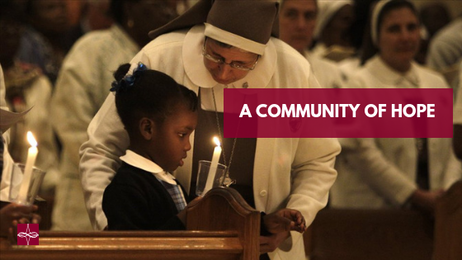
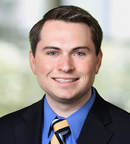


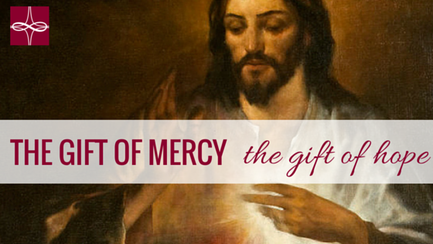
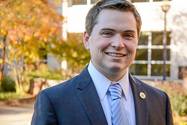
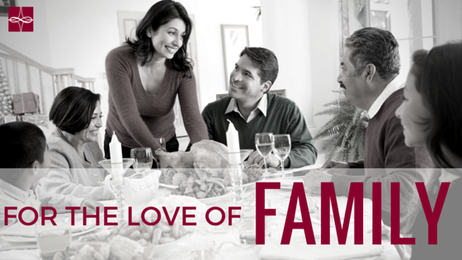
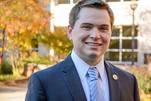




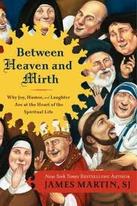
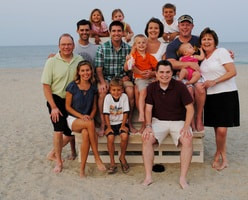

 RSS Feed
RSS Feed